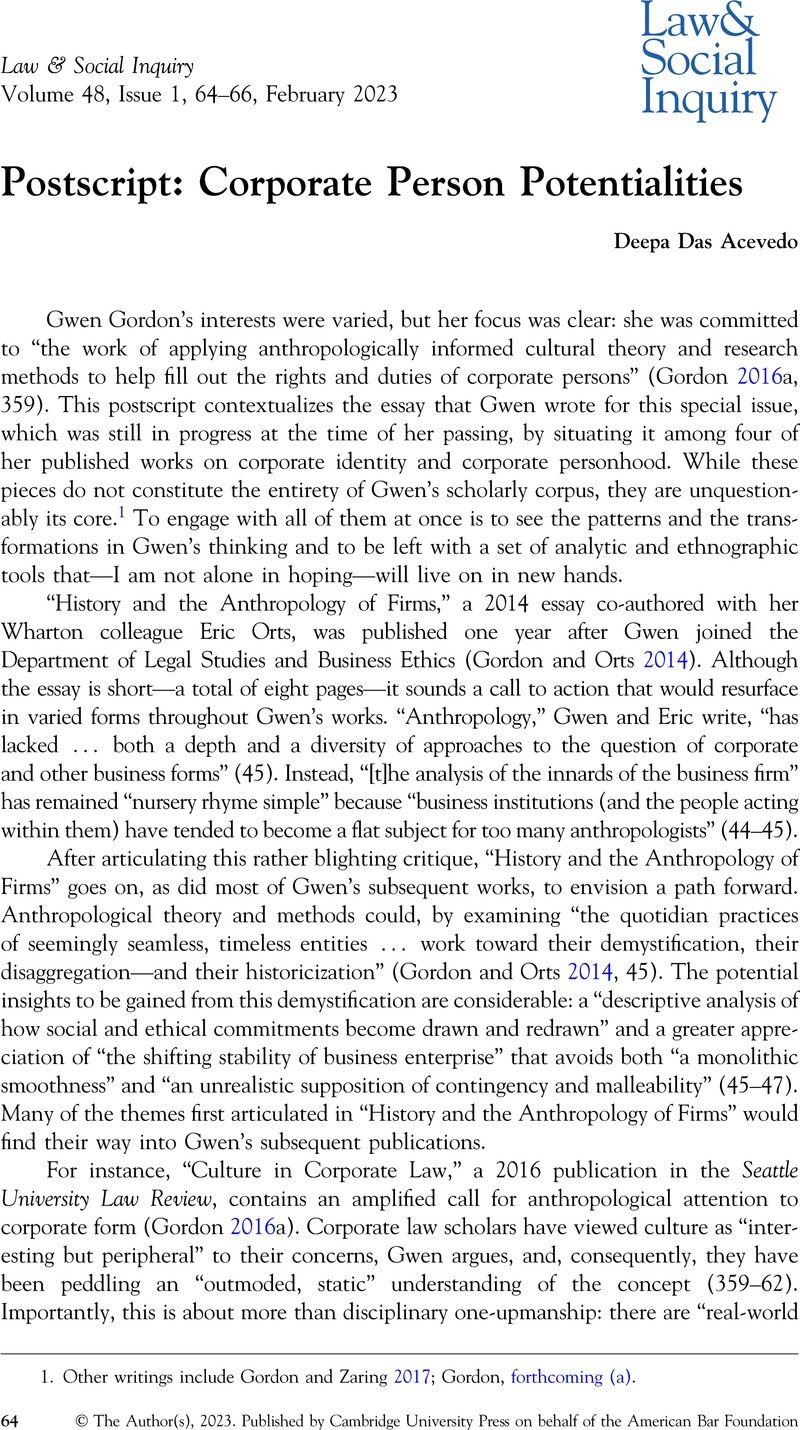Gordon, Gwendolyn.
Forthcoming (a). “A Grounded Company: Contradiction, Community, and Sustainable Business Practices.” In
Interdisciplinary Research for Sustainable Business: Perspectives of Women Business Scholars, edited by Beate Sjåfjell, Roseann Russel, Maja Van Der Valen.
Google Scholar 